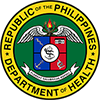Mark-up Regulation of Essential Medicines in DOH Facilities
Over the past decade, procurement prices have lowered in DOH hospitals because of more transparent pricing and pricing reforms such as the Drug Price Reference Index (DPRI). However, mark-ups vary widely within and across hospitals (i.e., 15%-2,574%) despite the implementation of AO No. 2005-0010, which allows a 30% mark-up for all medicines procurement regardless of acquisition cost.
The passage of the Universal Health Care Act reinforced the mandate of the government to ensure the affordability of essential medicines using price reference indices and determination of price mark-ups among DOH-owned health facilities to protect the patients from excessive and unnecessary charges.
In response to this, the DOH has developed guidelines to provide a uniform mark-up structure on essential medicines across all DOH hospitals to lessen the wide variation of retail prices of the same medicine.
Frequently asked questions
Republic Act No. 11223 or The Universal Health Care Act (UHC) provides the government the mandate to ensure equitable access to quality and affordable healthcare goods and services in the country. Section 28 of its Implementing Rules and Regulations (IRR) provides for medicine affordability using price reference indices and determination of price mark-ups of medicines among DOH-owned health facilities to protect the patients from excessive and unnecessary charges.
All DOH Hospitals, Specialty Hospitals, and Treatment and Rehabilitation Centers nationwide shall adhere to this policy.
Through data gathering, review of related literatures and public consultations, relevant data were analyzed and all other costs in pharmacy operations were considered. A combination of regressive mark-up plus fixed cost was identified to be the most appropriate scheme for this policy intervention.
Regressive mark-up is a mark-up whereby the size or value of the mark-up decreases as the price of the product increases.
Fixed cost or fixed fee is a set fee which does not vary according to the cost of item to which it is being applied.
The new mark-up scheme should take effect three (3) months after its signing to give ample time for the hospitals to sell the remaining stocks of medicines. This will take effect in January 2021.
Under Section V- General Guidelines No. 7 of AO No. 2020-0043, medicines being sold to Senior Citizens that is partially subsidized by the government (i.e., PCSO, MAIP, PhilHealth), discounts will no longer be applied.
This policy intends to protect the patients from excessive mark-up and other unnecessary charges which are being applied to medicine prices. Thus, SC/PWD discounts shall no longer be applicable.
Non-compliance to this Order shall be subject to existing rules and administrative sanctions as stipulated in RA 11223 (UHC Act), and other relevant laws such as RA 9502 (Cheaper Medicines Act) and RA 7394 (Consumers Act), among others.
For violations and complaints against erring hospitals, you may report it to the DOH Center for Health Development, which has jurisdiction over the concerned facility/facilities, or through email to the DOH-Pharmaceutical Division, dohpharmacosting@gmail.com
Related Issuances
News and updates regarding on Regulation of Mark-up on Essential Medicines at DOH Facilities
- Department Order (DO) presented and approved during the Execom meeting last August 18, 2020
- DO currently en route for signature of the Secretary of Health.
- Effectivity of the DO shall be three (3) months after it is signed.
Contact Us:
Telephone Number: 02-8757734 Loc. 253
Address: 4th Floor, Philippine Blood Center, Lung Center Compound, Quezon Avenue, Quezon City
Email Address: dohncpam@gmail.com


